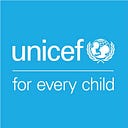Last born but 1st child registered
Nderengue Paul resides in the village of Mbal alongside his spouse. He is the proud parent of five children, four of whom have yet to undergo the registration process. Similar to many other parents in this village, he had refrained from initiating the registration procedure for his children due to the perceived lengthy duration: “I had never encountered the need to prepare a birth certificate for my children.” In 2019, non-governmental organizations (NGOs) had already commenced awareness campaigns in this village regarding birth certificates. Regrettably, these campaigns failed to garner significant attention from the residents: “I must confess that during that period, I harbored doubts regarding the ease of obtaining a birth certificate for a child, as all four of my children were without one,” states Marie Claire, Paul’s wife.
Despite the diligent efforts and establishment of advanced civil registry posts within the health facilities, the issue of birth registration still exhibited deficiencies due to the absence of follow-up on births occurring within the village.
Thanks to the financial support from KOICA, UNICEF is collaborating closely with the RECOPE Community Child Protection Network to implement measures that will streamline the identification of births within the villages. This involves deploying healthcare agents who conduct door-to-door visits to identify unregistered children, ensuring they are included in vaccination campaigns. Additionally, traditional chiefs and religious leaders (such as priests, pastors, and imams) have been granted the authority to identify unregistered births during baptismal celebrations and subsequently report them to the civil registry centers.
